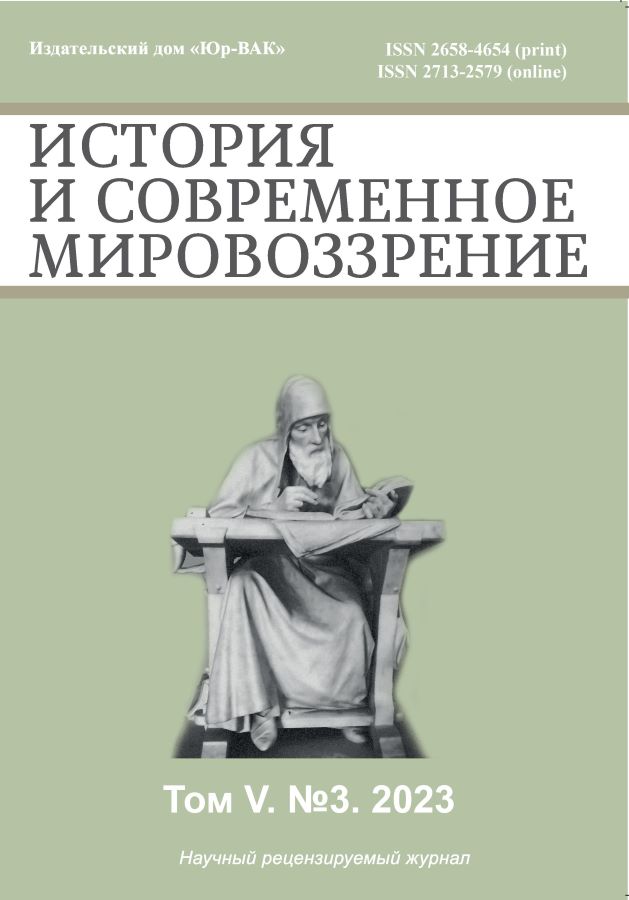International Processes in the Near and Middle East in the mid-1940s — mid-1960s in the Assessments of Contemporaries-Russian Emigrants
- Authors: Antoshin A.V.1
-
Affiliations:
- Ural Federal University named after the first President of Russia B. N. Yeltsin
- Issue: Vol 5, No 3 (2023)
- Pages: 114-119
- Section: DEBATING ISSUES OF GENERAL HISTORY AND INTERNATIONAL RELATIONS
- URL: https://journals.eco-vector.com/2658-4654/article/view/623961
- DOI: https://doi.org/10.33693/2658-4654-2023-5-3-114-119
- ID: 623961
Cite item
Abstract
The purpose of the article is to analyze the perception by Russian emigrants of the international processes of the Cold War era in the Middle East. The author focuses on the situation in the region in the mid-1940s — mid-1960s, when the foundations of inter-bloc confrontation were being formed. The source base for the study was the materials of the Russian émigré press published in Paris, Frankfurt am Main, New York and other cities of the world. An analysis of historical sources makes it possible to single out two main groups of Russian emigrants from the Cold War era. Some representatives of the Russian emigration sympathized with the Soviet Union and supported its efforts in the international arena, including in the Near and Middle East. However, the most active were those emigrant publicists who belonged to the anti-communist camp. It has been proven that they blamed the Soviet Union for the escalation of tension in various regions of the world, negatively assessed those political regimes of the countries of the region that were oriented towards the USSR. The conclusion is substantiated that the Russian emigration did not ignore the factor of contradictions within the Western bloc in the Cold War, showing how they were embodied in the policies of the USA, Great Britain and France in the Middle East.
Keywords
Full Text
About the authors
Alexey V. Antoshin
Ural Federal University named after the first President of Russia B. N. Yeltsin
Author for correspondence.
Email: alex_antoshin@mail.ru
ORCID iD: 0000-0002-6093-2219
SPIN-code: 6285-4494
Dr. Sci. (Hist.), Associate Professor, Professor, Department of Oriental Studies
Russian Federation, YekaterinburgReferences
- Vasilyev A. M. Egypt and Egyptians. Moscow: Classica plus, 2000. 352 p.
- Zvyagelskaya I. D., Karasova T. A., Fedorchenko A. V. The State of Israel. Moscow: IV RAN, 2005. 560 p.
- Hamroush A. The Revolution of July 23 in 1952 in Egypt. Moscow: Progress, 1984. 336 p.
- Briggs P. Making American Foreign Policy: President-Congress Relations From the Second World War to the Post-Cold War Era. Boston, 1994. 352 p.
- Britain and Suez: the Lion`s Last Roar / Ed. By S. Lukas. Manchester-New York, 1996. 139 p.
- British Defence Policy since 1945 / Ed. By R. Ovendale. Manchester-New York, 1994. 218 p.
- Burns W. J. Economic Aid and American Policy toward Egypt. 1955–1981. Albany, 1985. 303 p.
- Caplan N. Futile Diplomacy. Vol. 3. The United Nations, the Great Powers and Middle-East Peacemaking. 1948-1954. London, 1997. 418 p.
Supplementary files









